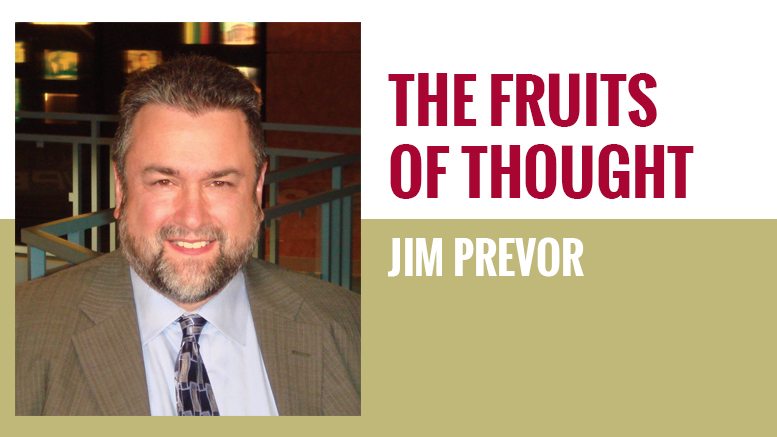COVID Vaccines Are Just The Beginning
November 24, 2020 | 4 min to read
With promising results exceeding 90% efficacy, COVID-19 vaccines from Pfizer, BioNTech, and Moderna offer hope for ending the pandemic. However, challenges such as distribution difficulties and public hesitance remain. The pandemic has exposed systemic weaknesses in health and food industries, revealing vulnerabilities that may shape a post-pandemic "new normal." As the crisis recedes, valuable lessons about resilience and preparedness are just beginning to unfold.

Originally printed in the November 2020 issue of Produce Business.
With the announcement of what seems to be highly effective — 90% and higher — COVID-19 vaccines by many companies — Pfizer, BioNTech, Moderna, AstraZeneca and others — it seems likely that vaccination programs will begin soon. There are limitations and unknowns. The availability of the vaccines will be limited, some have very difficult distribution protocols, and many people will be hesitant to try new vaccines. The logistical challenges are immense. The Pfizer vaccine, for example, must be kept at 940F below zero. So, the company has spent $2 billion to make that happen.
The vaccines hold out the hope that our global nightmare over COVID-19 may be coming to an end. Though we can’t yet be sure. Beyond the difficulties of vaccinating the whole world, COVID-19 itself is capable of mutation. Flu vaccines have been only partially effective because the flu changes from year to year. Although we all hope and pray for the best, there are still many questions: How long will immunity last? Will the most vulnerable populations gain immunity? There is much still to learn.
On the other hand, when President Trump is reviewed by history, when COVID-19 is a footnote in history texts, his decision to start and support Operation Warp Speed may be seen as an extraordinary achievement in human history. The Wall Street Journal explained:
The strong early results for two leading Covid-19 vaccines have implications that go far beyond the current pandemic: They suggest the time has come for a gene-based technology that could provide new treatments for cancer, heart disease and other infectious diseases.
The unproven technology, named messenger RNA after the molecular couriers that deliver genetic instructions, has long eluded researchers. An mRNA vaccine has never been cleared by regulators. It is now the basis for Covid-19 vaccines from Moderna Inc. and Pfizer Inc. and its partner BioNTech SE.
Both have shown in recent days to be more than 90% effective at preventing symptomatic Covid-19. That performance is in line with some older vaccines even though the new shots were developed in a fraction of the time.
“It’s 21st-century science,” said William Schaffner, professor of preventive medicine at Vanderbilt University School of Medicine. The positive data for mRNA-based Covid-19 vaccines bodes well for the technology’s potential to combat future outbreaks of infectious diseases,” he said.
The pandemic has revealed many weaknesses in our systems.
Many in the industry have gone through horrible times this year. Obviously, we have had industry members and their family members who have fallen ill. Most likely, some have died. Indeed, one of the tragedies of COVID is that forthrightness often doesn’t seem prudent. Would announcing that a salesperson on a terminal market had fallen ill with COVID attract customers?
The produce industry has been relatively lucky. People have to eat, so food is an essential industry. As a result, most retailers have had record sales through the pandemic.
Unfortunately, foodservice operators and their suppliers have been hurt horribly. Those that are not well financed may not be able to survive the financial stresses caused by the pandemic and, more specifically, the public policy response to the pandemic, which caused many foodservice operators to close, limits restaurants to take-out only or reduce dining capacity.
The overwhelming question of the day is this: If the vaccines come and if they are effective, thus eliminating the COVID-19 crisis, to what extent and in what ways will the global experience of COVID-19 create a “new normal” for society? What would that normal look like, and how would the industry evolve?
The pandemic has revealed many weaknesses in our systems. That a country as wealthy as the United States should find itself short of everything from N-95 face masks to intensive care beds in hospitals is distressing. Going into supermarkets and finding limits on toilet paper and paper towels creates panic as much as it is a response to panic.
Yet there is an unclear route to solving these problems. During a crisis, the government, at all levels, starts funding emergency measures, building field hospitals, etc. Some actions that delay discretionary medical procedures have long-term consequences that are difficult to quantify in the midst of a crisis.
When things calm down, though, it will be difficult for parties to invest in building capacity to, say, handle double the intensive care patients they normally have, or to produce billions of face masks that nobody wants to buy.
Indeed, the industry issues are no less difficult to discern. Yes, companies focused on foodservice have been damaged and some will fail. Is the lesson there that companies should retain their earnings and seek outside investment so they can survive stressful times? Or is the lesson that companies should pay out all the earnings they can and let lenders hold the bag when the next crisis hits — a pandemic, a war, a depression or something else?
It does appear that the immediate crisis will recede soon due to the vaccines. But the learnings from the crisis are just beginning.
1 of 16 article in Produce Business November 2020

